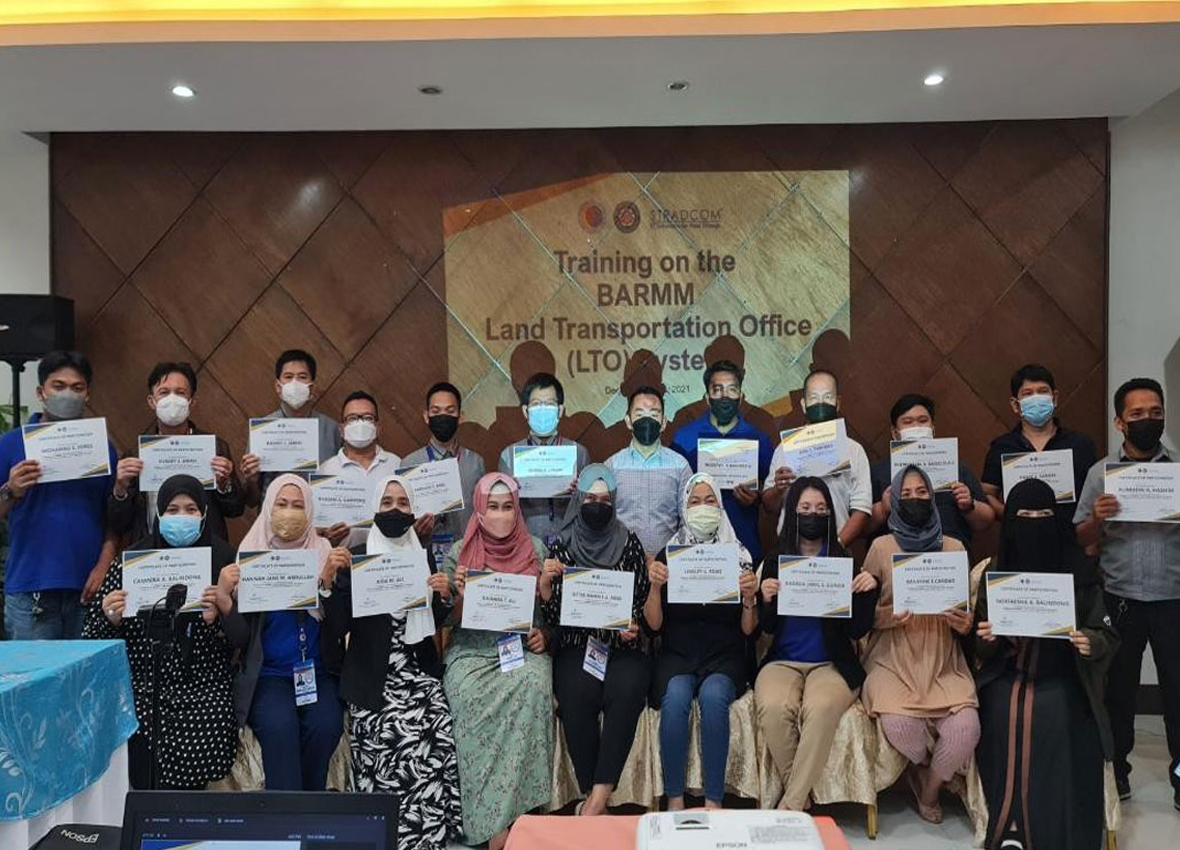THE creation of the Bangsamoro Autonomous Region in Muslim Mindanao (BARMM) marked a new dawn for the Bangsamoro community, which for decades, struggled to achieve long-lasting peace, economic development, and meaningful autonomy. The BARMM was created pursuant to the Bangsamoro Organic Law (BOL), also known as Republic Act 11054, which was signed into law by President Rodrigo Duterte in 2018. In accordance with the BOL, the establishment of BARMM became effective when the BOL was ratified in a plebiscite held in 2019. BARMM is still undergoing a transition – a crucial stage that will lay the foundation for its future. The transition period requires a strong partnership between multiple sectors, such as the national government and the private sector, to ensure the swift realization of the dreams and aspirations of the Bangsamoro community.
One of BARMM’s ministries that plays significant role in the BARMM transition is the Ministry of Transportation and Communications (MOTC). The MOTC is the primary policy, planning, programming, coordinating, implementing, regulating, and administrative entity of the Bangsamoro Government in the promotion, development, and regulation of dependable and coordinated networks of transportation and communications systems in the region.
While the transition period carries a lot of challenges, MOTC officials believe that finding strategic partners is key to addressing these hurdles. In November 2021, MOTC partnered with Filipino information technology (IT) company STRADCOM to help them in the organization and automation of their systems for the BARMM Land Transportation Office (BLTO). STRADCOM is LTO’s long-time IT provider and the proponent of the multi-billion peso LTO-IT project, which automated the core processes of the agency. STRADCOM President and CEO Anthony Quiambao said the historic partnership with BARMM symbolizes the company’s commitment to participa ting in the progress of the Bangsamoro region.
BLTO Regional Head Anwar Upahm, in an interview, said that they chose STRADCOM as their partner owing to the IT company’s capability and proven track record in automating land transportation systems of LTO. The system developed by the IT firm is installed in all of the LTO branches that the BLTO will take over, which makes it easier for them to transition. Upahm added that aside from being systematic and user-friendly, the LTO-IT system is responsive to the internet connectivity speed in the region.
STRADCOM also provides site support and regular coordination to help BLTO personnel in their daily activities. The IT firm also organizes capacity-building and knowledge-sharing activities for BLTO officials and personnel on the system and process handling for major BLTO services.
Upahm said the partnership with STRADCOM has made the transition of LTO offices seamless despite having new personnel in the acquired offices. The IT firm enabled the regionalization of BLTO, which made the transactions simpler and more efficient to process. The BLTO chief added that these strategies prevented the team from having transaction backlogs.
To date, four out of eight LTO sites are now under the jurisdiction of BLTO. These offices include Bongao Extension Office in Tawi-Tawi, Jolo District Office in Sulu, and Cotobato District Office and Cotobato Licensing Center in Cotobato City. These BLTO sites can now process a monthly average of 2,500 motor vehicle and driver’s license transactions.
Other offices for turnover this year include Maguindanao District Office, Datu Abdullah Sangki Extension Office in Maguindanao, Marawi City District Office, and Wao Extension Office in Lanao del Sur. The BLTO is also planning to open new sites to bring its services closer to its constituents.
STRADCOM spokesperson Lorie Bundoc said that the company is planning to upgrade BLTO facilities to provide a more conducive environment for the transacting public and the system users. Self-service kiosks and the use of cashless payment options are also being considered. Bundoc added that it has always been STRADCOM’s mission to provide technology solutions that offer positive impact and quality service to the motoring public.
Upahm said that the ultimate goal of BLTO is to develop its own credible IT system that will help them provide quality land transportation management services that the BARMM community deserves − a system that will prevent corrupt practices and spur economic growth. The BLTO is optimistic that with sufficient experience and the right partners, they can achieve this goal. As the transition is still underway, the BLTO is grateful for having a partner like STRADCOM, which assists them in every step of the way and believes that they can realize their aspirations of achieving long-lasting peace, economic development, and meaningful autonomy.

